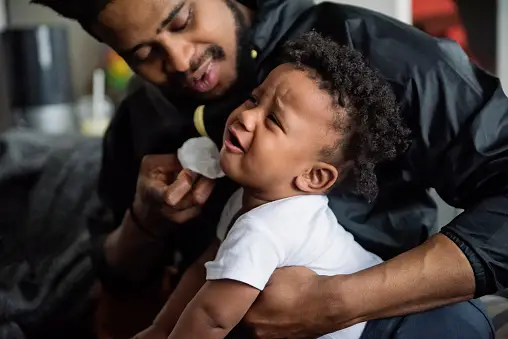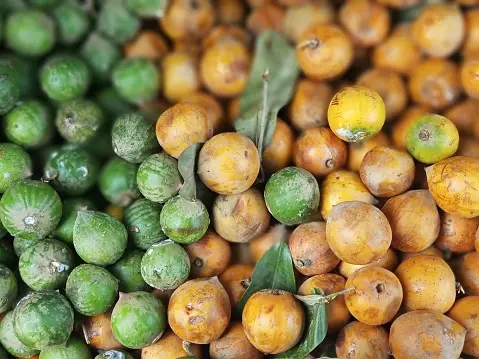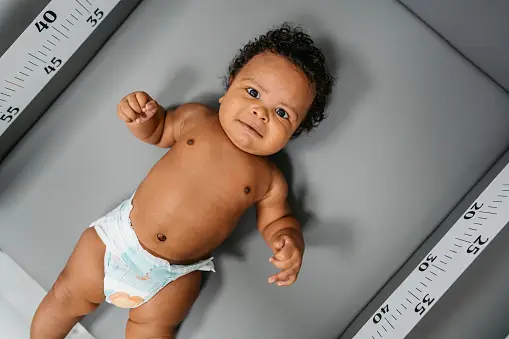Teething is a normal developmental stage to attain growth in babies. It is the process by which an infant’s teeth erupt through the gums. Teething is also known as “cutting” of the teeth. It is medically termed odontiasis. Teething starts at 3 months but often occurs at 4 months upwards.
This process can cause your baby a lot of pain and discomfort. Often, nothing seems to help. Their sleep schedule gets disrupted, and they tend not to engage in playtime. This article explains the symptoms, care and things to avoid when your baby is teething.
When does teething happen?
The onset of teething symptoms typically precedes the eruption of a tooth by several days. While a baby’s first tooth can appear between 4 and 10 months of age, the first tooth usually erupts at approximately 6 months.
However, some dentists have noted a familiar pattern of “early,” “average,” or “late” teethers. Late teething doesn’t signal a problem with your child’s overall development.
How do I know my baby is teething?
Some of these symptoms may signify that your baby could be teething. They include:
Trying to bite, chew, and suck on everything
If you notice your baby trying to gnash or bite down on their favourite toy, it may be a sign of teething. They need a surface to exert the pressure caused by the pain from their teeth. Ensure all their toys are properly cleansed and disinfected from germs.
Excessive drool
Some experts believe drooling helps soothe the pain from teething. However, babies start drooling at 3 to 6 months, especially when consuming solid foods.
Fussier and grumpier than usual
Your baby might become fussy during this period. They might become resistant to your cuddles and agitated at every little convenience.
Disturbances in sleep patterns
Due to the pain, their sleep patterns become distorted. They sleep less or sleep at irregular times.
Fever
If you notice your baby has a higher-than-usual body temperature with these symptoms, it might be teething. Check their temperature immediately.
Rashes
Due to their sensitive skin, your baby might develop a facial rash because of the constant drooling.
Decreased appetite
Your baby might have less appetite for food due to this pain.
Pulling of ears and rubbing of chin and cheeks
They feel pain around their cheeks and ears. Hence the constant rubbing and pulling of their ears. However, frequent ear pulling may signify an ear infection. If you notice this, consult your paediatrician immediately.
Swollen and protruding gums
Your baby’s gum might become swollen. You may also notice a bluish or brownish bump where the teeth erupt. It is normal and often painless.
How do my baby’s teeth grow?
How and when your baby starts growing teeth depends on your family history. Most times, the lower frontal teeth erupt between 6 to 10 months. Next is the opposite top two teeth. If your baby is between 7 to 13 months, two on either side of their teeth begin to sprout.
Their first molars appear between 10 and 16 months. Afterwards, the teeth in front of the molars appear. Lastly, the back molars appear. By age 3, your infant should have a total of 20 teeth.
What are teething powders?
Teething powders are harmful chemical substances used when babies are teething. In Nigeria, these products are popular and known to cure teething. It is dangerous and can cause several abnormalities affecting your baby’s growth and development. In some cases, it causes death. Some such products are Piccan, Gbomoro, Bonabebe, My Pikin, etc.
Teething powders are unsafe and pose a danger to your child. Speak to your paediatrician to adequately prescribe painkillers to subdue your baby’s pain.
Care for your teething baby
Teething rings: They provide a chewy surface for your baby. They distract them from pain and allow them to chew safely. You may cool the teething ring for some time to relieve their swollen gums of pain.
Follow the instruction in the ring to learn how to cool.
Gently rub on their gums with a clean finger.
If your baby dribbles frequently, dab their face with a clean towel to prevent rashes.
Give your baby cold foods if they have started consuming solids. Remember not to give them frozen food.
Your doctor might suggest painkillers if your baby is 6 months or older. Do not self-administer drugs without the doctor’s prescription.
Is diarrhoea a sign of teething?
No, there is no evidence to prove this. Your baby could be suffering from another illness. It could be due to lactose intolerance or introduction to solid foods. Consult your paediatrician for a proper diagnosis.
Things to avoid during teething
Avoid teething gels: There is no medical evidence to prove their effectiveness in teething. If you decide to use a teething gel, consult your paediatrician. Ensure it’s recommended for babies.
Teething powder or Agbo: Abstain from certain mixtures or teething powder during this period. Avoid such as they may cause kidney, jaundice, and liver problems.
Aspirin: Do not medicate your baby with aspirin. It may lead to Reye’s syndrome.
Teething necklaces: They are strangulating and suffocating instruments.
Topical benzocaine medications may cause severe and potentially lethal side effects and should not be used to treat teething symptoms.
Teething takes time. Remember that what works for baby A might not work for your baby. Be patient and administer the above care to your baby. You got this, mama!










Comments